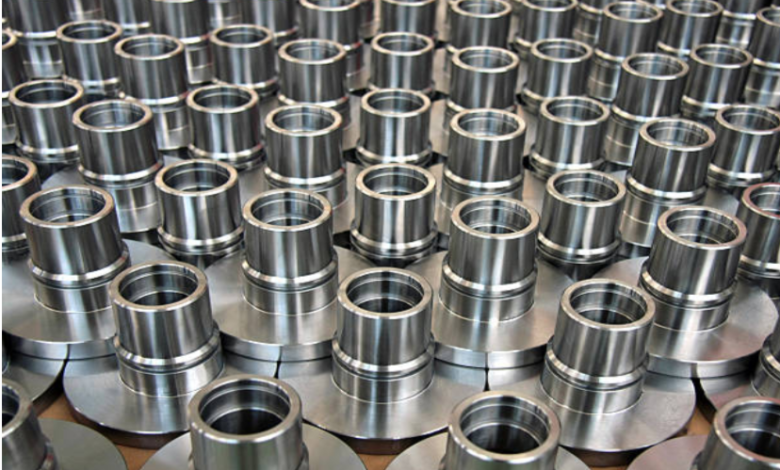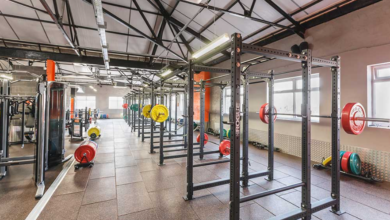Aluminium Machined Parts in Harsh Environments: How to Keep Them Cool and Strong

In sectors such as aerospace, medical tech, and factory automation, a broken part can shut down a mission. Engineers and purchasing teams want components that shrug off extreme heat, sudden pressure spikes, hard jolts, and aggressive chemicals without flaking or cracking. Aluminium machined parts often lead that wish list because they blend decent strength, light weight, and rapid heat spread. That promise only holds if a top-tier machine shop controls every cut, grind, and polish with tight tolerances.
This article reviews the design tips, alloy choices, and floor-floor tricks that let aluminium shine under tough duty. Aimed at B2B leaders, it also explains how partnering with skilled machinists boosts machine uptime and trims future expenses.
Why Aluminium Excels in Harsh Operating Environments
Aluminium offers a unique mix of qualities that make it the trusted metal when conditions inside machines turn brutal. Because it is non-ferrous, it stays light, conducts heat quickly, resists corrosion, and costs less to cut than many steels.
Core Benefits Include:
Thermal Conductivity: Moves heat away fast, making it ideal for electronic housings and heat sinks.
Corrosion Shield: A quick surface treatment lets aluminium shrug off rust and most shop chemicals.
Light but Tough: Using aluminium cuts a project’s weight yet keeps the frame sturdy.
Easy to Machine: Modern CNC bits carve out complex parts and leave a crisp finish every time.
Because of these tricks, machined aluminium shows up in planes, pumps, and other places failure costs lives.
Precision Matters: How Tight Machining Chooses An Aluminium Fate
Great metal is wasted on bad setup. Tough applications expect more than entry-level CNC-work-they expect parts cut to within a few microns. That is why many engineers keep a high precision machining company on speed-dial.
Tolerance Accuracy
In high-speed, high-load, or heat-shifting jobs, you may demand tolerances within ±0.001mm. Such tight numbers guarantee steady operation, easy assembly, and parts that play nicely together.
Surface Finish Requirements
Surface look is not just skin deep in many sectors. In medical gear or chips, glass-smooth faces stop germs and debris from hanging around. Precision machining delivers exactly that finish.
Toolpath Optimization
Parts with shapes like cooling channels, support ribs, or built-in mounts need multi-axis CNC work and smart toolpaths to come out right. When top-grade machines team up with skilled operators, those parts stay within specs and don’t bend, chip, or lose detail.
Thermal Engineering: How Aluminum Guards Heat-Sensitive Gear
Aluminum spreads heat faster than most metals, so it shines in projects where hot spots slow performance, shorten life, or even stop equipment cold. Designers lean on this quality every time temperature control matters.
Techniques to Improve Thermal Management:
- Machined Heat Sinks: Deep fins and wide faces that grab air and push warmth away fast.
- Passive Cooling Integration: Finned paths and open cages that let rising air move freely.
- Thermal Isolation Zones: Barriers built in to keep hot sections away from delicate electronics.
Working with a high-precision machining company lets these features go into the part as it is cut, not bolted or glued later. That saves money, speeds delivery, and gives the final assembly one solid, reliable design.
Keeping Aluminum Strong in Tough Conditions
Tough working conditions go beyond heat; they also mean heavy vibration, sudden pressure changes, and constant flexing. Although aluminum feels softer than steel, modern design and tech let it carry heavy industrial loads.
Smart Design Moves:
- Weight-Cutting Shapes: Hollow sections and clever curves trim mass but keep strength.
- Stress-Relief Steps: Planned machining reduces internal tension that can twist or crack parts.
Fatigue-proof alloys like 2024 and 7075 push back against the tiny cracks that form after thousands of cycles.
Pair those alloys with a high-precision machine shop, and you get light, rugged aluminium parts that outlast the workday.
Where Aluminium Machined Parts Find Real-World Uses
Because aluminium is light, strong, and easy to machine, manufacturers trust it in many B2B fields. Here are a few of the most visible applications:
Aerospace & Defense
actuator housings, radar modules, cockpit control knobs
parts must survive extreme heights, sharp thermal swings, and pressure pulses
Medical Technology
frames for MRI scanners, X-ray machines, lab analyzers
every piece needs tight tolerances and surfaces that stay clean in sterile rooms
Automotive & EV Systems
lightweight engine brackets, inverter shells, brake fittings
parts resist heat and keep strength during sudden load changes
Semiconductor & Electronics
fixtures, wafer handlers, cooling chassis
sub-micron specs and built-in thermal paths are everyday requirements
Robotics & Automation
robot limbs, mounting plates, thermally-managed sensor shells
components run long hours in factories without cool-downs or failures
In every sector, the blend of alloys and clever machining keeps aluminium the top choice for mission-critical parts.
Picking the Right Precision-Machining Partner
Not every shop can meet today’s tough demands for quality, speed, and traceability. Picking the best precision-machining partner guards your budget, extends product life, and gives your idea a stronger shot at success.
Selection Criteria:
Technical Know-How: Experienced engineers who cut, grind, and polish on CNC, EDM, and finishing machines every day.
Quality Checks: ISO certificates, spot checks while the run goes, and full tests before any part leaves the door.
Flexibility: No minimum order, so you can build a prototype or keep a small line running without delay.
Material Handling: Proven skill with many grades of aluminium, from soft sheet to hard plate, plus the finish you want.
Lead Time: Fast shipment for urgent R&D or replacement parts that simply cannot wait.
A trustworthy machine shop does more than cut metal; it adds value through wise counsel, steady quality, and on-time delivery.
Read Also: Navigating Computer Repair: The Essential Guide to Tech Insurance Claims
Conclusion: Engineering Aluminium for Endurance and Precision
As factories push harder for speed, strength, and lifespan, machined aluminium parts keep proving themselves. With a high-precision shop at your side, each piece can be tuned for the heat and load it will face in the field.
From narrow gaps and sharp lines to shiny mirrors and special metals, every piece matters. In jobs that can’t fail, investing smartly in skilled machining isn’t an expense-it’s the advantage you want.




